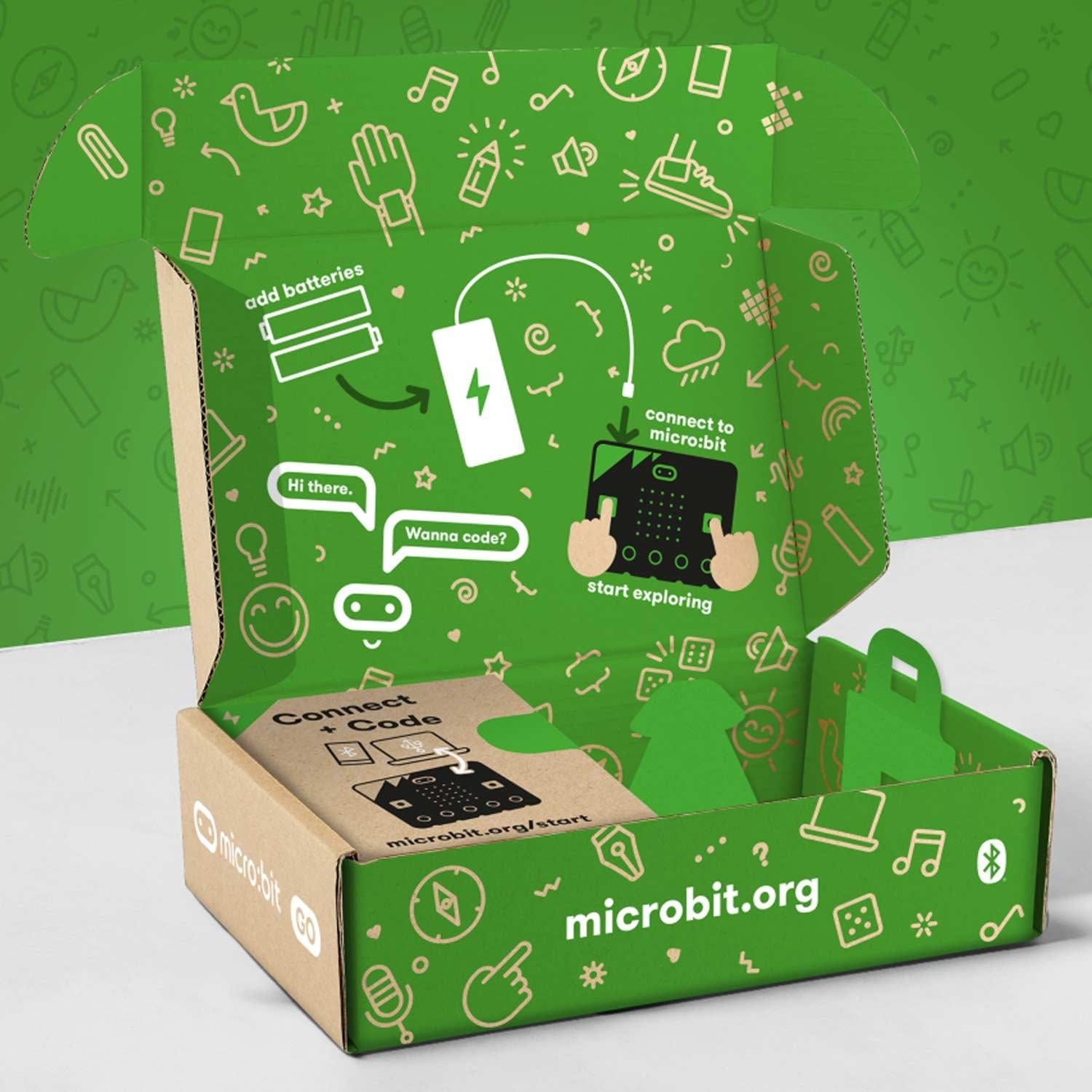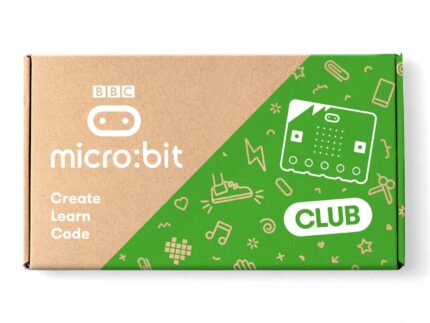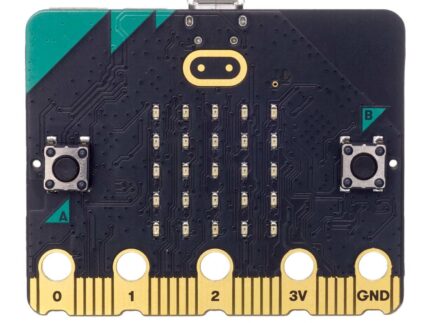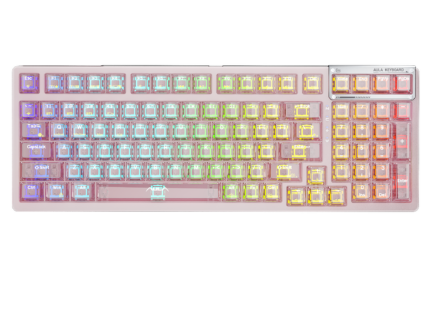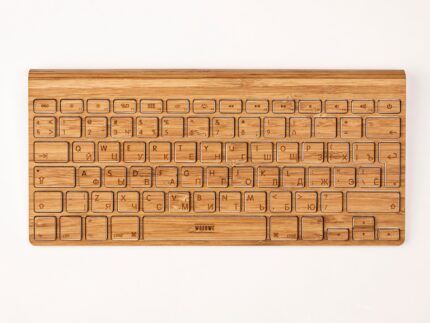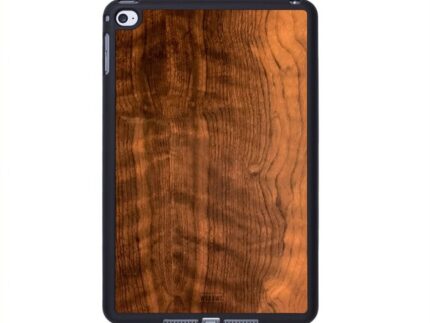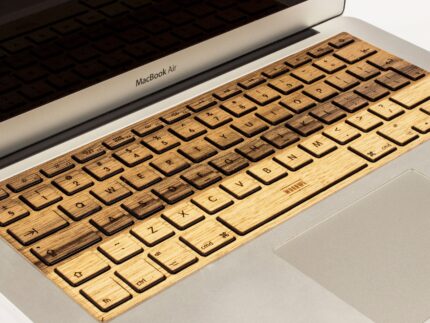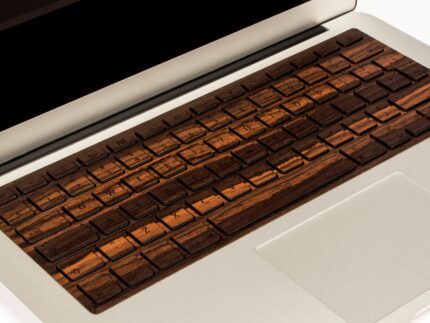micro:bit V2 GO – Starter Kit
Meet the new micro:bit V2 – an improved version of the original micro:bit featuring a built-in speaker, microphone, touch sensor and more computing power!
This listing is for the micro:bit GO Starter Kit, which includes:
- 1x micro:bit V2 board (random colour – red, yellow, green or blue)
- 1x USB cable for connecting to your computer
- 1x Battery holder for projects on the move
- 2x AAA batteries
- 1x Quick Start Guide
The NEW micro:bit V2
The BBC micro:bit V2 is a pocket-sized computer that you can code, customize and control to bring your digital ideas, games and apps to life.
It’s a fantastic way to introduce budding coders into the wonderful world of computer programming. With the easy to use online code block editor and simple crocodile clip friendly board, coding fun projects and using electronic components is easier than ever.
Great for learning!
- Detects motion and direction – create games which use shaking motions or directions with the built-in sensors and compass
- Control your projects using the 2 buttons clicky buttons – make games, control robots, count things!
- Tap the capacitive button as an input for your projects – stop/start music, start a timer, run a program or whatever you decide!
- Flash messages, your name or animations across the 25 programmable lights
- Connect the BBC micro:bit to your phone using Bluetooth to take selfies without touching your phone
- Use the on-board speaker to play sounds or music as part of your project
- Easy to code with the online drag-and-drop code block editor
Features
-
Inputs and outputs
- Inputs and outputs are an important part of any computer system. As a very small computer, the BBC micro:bit has plenty of inputs and outputs to learn about and use with electrical components
-
LEDs
- An LED, or light-emitting diode is an output device that gives off light. Your BBC micro:bit V2 has a display of 25 LEDs for you to program
-
Buttons
- Buttons are a very common input device. Your micro:bit has two buttons you can program, and a reset button.
-
Radio
- Radio is a way of sending and receiving messages and BBC micro:bits can use radio waves to communicate with each other
-
Accelerometer
- An accelerometer is a motion sensor that measures movement. The accelerometer in your micro:bit detects when you tilt it left to right, backwards and forwards and up and down. Great for making games!
-
Compass
- A digital compass is an input sensor that detects magnetic fields. Your BBC micro:bit has an inbuilt compass that can detect the direction in which it is facing
-
Light sensor
- A light sensor is an input device that measures light levels. Your BBC micro:bit uses the LEDs to sense the levels of light and lets you program your micro:bit as a light sensor
-
Temperature sensor
- A temperature sensor is an input device that measures temperature. Your BBC micro:bit has a temperature sensor inside the processor which can give you an approximation of the air temperature around it.
-
Pins
- On the bottom edge of your BBC micro:bit there are 25 gold strips, called pins. These pins allow you to really get creative. You can create circuits, connect external things like buzzers and motors and make your own fun projects.
-
Sound
- Your BBC micro:bit can be programmed to make a wide variety of sounds – from single notes, tones and beats to your own musical compositions.
-
USB interface
- USBs, or Universal Serial Buses, are used to connect, communicate and power computers and digital devices. The BBC micro:bit has a USB interface to allow you to connect your computer to your micro:bit using a micro USB cable and power your micro:bit.
-
Processor
- A processor is sometimes called the ‘brains’ of a computer and your BBC micro:bit has a microprocessor inside it. It’s an essential part of your micro:bit as it runs the programs you write.
Using the micro:bit V2
- Set up guide
- Using the LEDs and buttons
- Using the sensors
- Radio and Pins
- Project ideas
Sensors
The micro:bit V2 has no less than six sensors onboard to create awesome projects with (click for project examples!):
- Motion
- Temperature
- Light
- Magnetism
- Sound
- Touch
Tech Specs
-
32-bit ARM Cortex-M4 processor with FPU (Nordic nRF52833)
- Flash ROM: 512KB
- RAM: 128KB
- Speed: 64MHzProcessor:
- Bluetooth Wireless: 2.4GHz
-
Motion sensor:
- Features: 3 magnetic field and 3 acceleration axes, 2/4/8/16g ranges
- Resolution: 8/10/12 bits
-
Temperature Sensing:
- Sensing range: -40C to +105C
- Resolution: 0.25C Steps
- Accuracy: +/- 5C
-
Speaker:
- SPL: 80dB @ 5V, 10cm
-
Microphone:
- Microphone: -38dB ±3dB @ 94dB SPL
- Frequency range: 100Hz ~ 80kHz
-
Power Supply:
- Operating Range: 1.8V – 3.6V
- Operating current: 300mA max
- Battery connector: JST X2B-PH-SM4-TB
